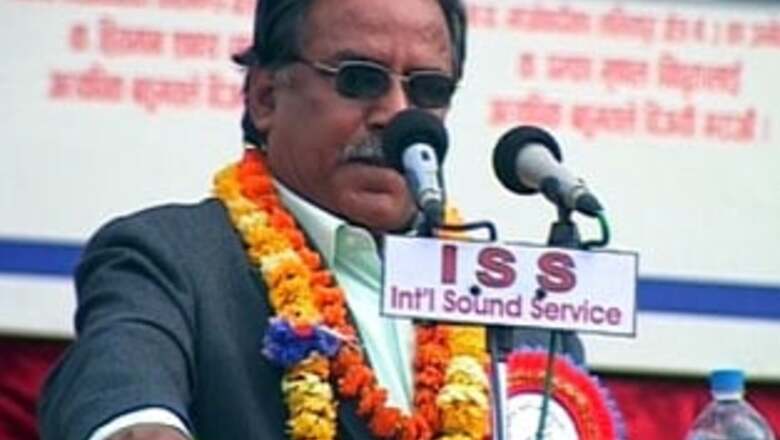
views
Kathmandu: With the formation of a national unity government appearing unlikely by Saturday's deadline, three ethnic Indian Madhesi parties, with a combined strength of 83 seats in Parliament, hold the key to breaking the political logjam in Nepal.
Major political parties were engaged in parleys and strategy sessions on Friday but finding the way out of the deadlock before the deadline set by President Ram Baran Yadav seemed unrealistic.
The political crisis was sparked by Maoist premier Prachanda's resignation after Yadav blocked his move to sack Army Chief General Rukmangad Katawal.
The Maoists were hesitating to support a government led by former ally CPN-UML and were not ready to join the new government under any other party's leadership. Nepali
Congress, the second largest party in Parliament, has said it will back a CPN-UML candidate for the post of prime minister.
"Our Madhesi front will support any party that is prepared to form a national government," said Rajendra Mahato, president of Sadbhavana Party. When asked what will be the
Madhesi parties' position if efforts to form a national unity government fails, he said, "we will sit together, discuss the matter and try to find out our common stance."
The Madhesi People's Rights Forum (MPRF) has 53 seats in the Constituent Assembly, Terai Madhes Democratic Party (TMDP) has 21 seats and the Sadbhavana Party has 9 seats.
The combined strength of the Madhesis is 83 and they are holding the key position in the 601-member Constituent Assembly, where Maoists have 238 seats, Nepali Congress 113 seats and the CPN-UML 108.
The NC-UML combination together has 221 seats and if the Madhesi front supports it, the alliance will have 305 seats, which is sufficient to form the new government.
NC Vice-President Ramchandra Poudyal said it is upto the UML to decide whether they choose Madhav Nepal or Jhala Nath Khanal -- the two names doing the rounds for the prime minister -- for the top post.
The Maoists have staged street protests and disrupted Parliament seeking the sacking of the army chief. The Maoist government had been locked in a months-long bitter row with Katawal over intergration of former rebel combatants into the the regular army.
Nepal has been struggling to establish a democracy after the abolition of the unpopular 240-year old monarchy last year. It is still to draft a new constituion despite the Constituent Assembly being formed in April last year.


















Comments
0 comment